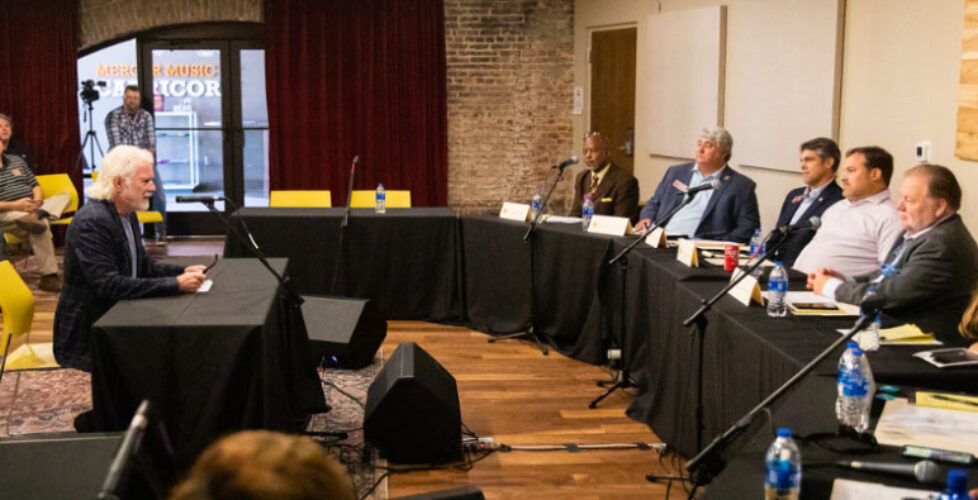Nonprofit helps Georgia music industry make the case for a statewide music tax incentive

Georgia is synonymous with great music history, whether it’s OutKast, R.E.M., Luke Bryan or Gladys Knight — and the list goes on. Now, several musicians and industry leaders are hoping to make their case for why Georgia should have tax incentives for the music industry.
The move would mirror the success of incentives provided to the film industry years prior, which led to the state becoming a production hub for several notable franchises and film studios.
According to the Georgia Department of Economic Development, film and television industry productions spent $4.4 billion in Georgia during fiscal year 2022.
A nonpartisan study group in the Georgia legislature called the Joint Georgia Music Heritage Study Committee was assembled during the 2022 legislative session to assess how to expand and encourage the music industry to grow and invest in the state, as well as how to utilize and promote the state’s vast music history. A nonprofit named Georgia Music Partners is hoping to lead the way in making the case.
So far, they’ve had meetings in Macon and Athens–two major music hubs in the state–with others to follow.

“We had a wide variety of presenters from local government, arts organizations, musicians, music educators and venue owners,” Mala Sharma, president of the Georgia Music Partners board of directors, said of the gatherings.
“I think the meetings are going very well. We’ve got great engagement by the legislators on the committee,” she said. “I think they’re learning a lot about the industry, the challenges we face, the opportunities as well as really what and how we can possibly take some steps to continue to grow jobs here, but also to compete with what other states are doing as well.”
Those meetings have also had some star power from some of the state’s biggest music names who are hoping to help make the case.
“In Macon, we had Chuck Leavell, the Rolling Stones’ keyboardist,” said Sharma. “He was also keyboardist with Allman Brothers. He has been a champion of Georgia’s music industry for such a long time.”
Sharma argues that the case for greater incentives for the music industry is built into music’s presence within the state.
Georgia Music Partners hopes to build momentum toward concrete action on the tax incentive during the 2023 Georgia legislative session.
“Music is something that contributes to each and every community already within Georgia,” she said. “You know, we see it in schools and churches, developing artists and musicians, songwriters. We see it in schools. And we’ve got 48 secondary programs all around the state that are educating students in music or music business arts, administration majors.“
She also said that it’s a matter of keeping Georgia’s music talent in Georgia.
“We want to find opportunities to keep them here and provide jobs for them when they graduate,” she said. “Unfortunately, right now, most of the graduates of our programs are leaving the state.”
There are other states in the U.S. that currently have dedicated music offices in government — including Tennessee, Oklahoma, and Texas. Sharma hopes to encourage Georgia to open one of its own.
“If we were able to have a dedicated music office, where there is a team of industry professionals that know and have relationships, know how the industry works, they would really be working to advance music opportunities and investment in our state,” she said.
And beyond that, Sharma said the benefit of a vibrant music community speaks for itself.
“Musicians that are here, many of them really invest in their local communities and already give back, whether it’s through nonprofits or teaching or through benefit concerts,” she said. “Music is one of those things that contributes immensely to the quality of life. And so I think that’s why we feel it’s a worthy cause.”
